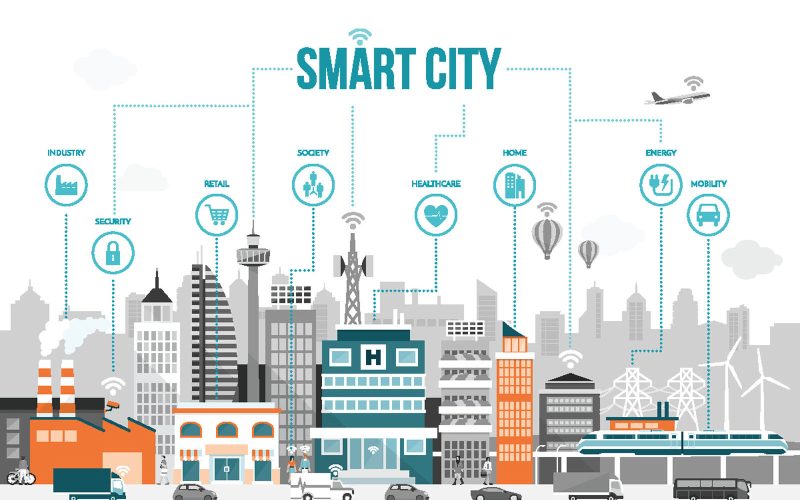Understanding the Concept of Smart Cities

Smart Cities are innovative hubs driving economic growth. They are urban areas that utilize different types of electronic methods and sensors to collect data. Insights gained from that data are used to manage assets, resources, and services efficiently. This data collection and use of technology lead to improvements in infrastructure, public utilities, and services, which in turn attract investments, fostering a robust economic ecosystem. The integration of information and communication technology (ICT), and various physical devices connected to the IoT network, provides efficient services to citizens, enhancing the quality of life and the overall urban environment.
Economic Growth and Prosperity in Smart Cities
Smart Cities are indeed catalysts for unprecedented economic growth and prosperity. They attract investments, foster innovation, and create jobs, thereby driving economic growth. The economic benefits of Smart Cities are promising for the future. They have the potential to drastically increase the GDP of a country by attracting more investors, creating more job opportunities, and enhancing the overall productivity of the city. The integration of digital technology in urban areas also leads to improved public services, better infrastructure, and increased efficiency, all of which contribute to economic growth and prosperity.
Job Creation Potential of Smart Cities
Smart Cities have significant potential to create new job opportunities. With the integration of digital technology and the development of new infrastructure, there is a need for a workforce skilled in these areas. This leads to the creation of new jobs in different sectors, such as IT, construction, transportation, and public services. The economic benefits of Smart Cities also include increased productivity and innovation. With the use of technology, tasks can be completed more quickly and efficiently, leading to increased productivity. Furthermore, the innovative nature of Smart Cities fosters creativity and encourages the development of new ideas, products, and services.
Infrastructure Development and Urban Planning
Infrastructure development in Smart Cities boosts economic growth significantly. The construction of new buildings, roads, and public utilities creates jobs and attracts investments. Furthermore, urban planning in Smart Cities optimizes resources, enhancing economic benefits. The use of technology allows for efficient use of resources, minimizing waste, and maximizing output. This not only leads to economic growth but also contributes to environmental sustainability.
Improved Public Services and Efficiency
Smart Cities leverage technology to enhance public services efficiency. The use of digital technology allows for the quick and efficient delivery of public services, leading to increased citizen satisfaction. Improved public services in Smart Cities stimulate economic growth by attracting more residents and businesses. The efficient delivery of services also leads to cost savings, further boosting economic growth.
Innovation and Technological Advancements

Smart Cities’ innovative technologies drive significant economic growth. The use of digital technology leads to the development of new products and services, creating jobs and attracting investments. Technological advancements in Smart Cities also stimulate job creation. The need for skilled workers in the field of technology leads to the creation of new jobs, further contributing to economic growth.
Sustainable Development and Environmental Benefits
Smart Cities contribute to sustainable development by reducing environmental impact. The use of technology allows for efficient use of resources, minimizing waste, and reducing the city’s carbon footprint. Economic benefits of Smart Cities also include increased efficiency and productivity. The efficient use of resources leads to cost savings, while the use of technology leads to increased productivity, both of which contribute to economic growth.
Enhanced Quality of Life and Citizen Satisfaction
Smart Cities significantly enhance the quality of life through economic growth. The development of infrastructure, improved public services, and the use of technology all contribute to a better quality of life for residents. Citizen satisfaction in Smart Cities correlates with economic benefits. When citizens are satisfied with the services provided by the city, they are more likely to invest in the city, further contributing to economic growth.
In conclusion, Smart Cities offer numerous economic benefits, including increased investments, job creation, improved public services, and sustainable development. These benefits not only lead to economic growth and prosperity but also enhance the quality of life for citizens.










